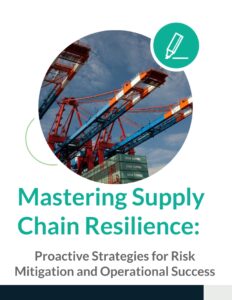From Passion to Process: Why Entrepreneurs Must Balance DIY Spirit with Structured Growth for Lasting Success
There’s an unparalleled sense of satisfaction that comes from crafting furniture with your own hands, meticulously installing a kitchen by yourself, or completing any DIY project independently. This joy is found not only in the completion but also in the process—choosing the right materials, overcoming challenges, and seeing your vision come to life without the need to call in the experts.
Entrepreneurs often embody a profound sense of pride and accomplishment, a sentiment that blooms from building and managing their businesses from scratch. They thrive on the autonomy it offers, preferring to “go with the flow” and place their trust in their innate abilities to steer through the complexities and unpredictable waters of entrepreneurship. Instead of establishing rigid formal procedures or seeking third-party assistance to streamline their operations, these individuals see immense value in learning from every encounter, adapting flexibly to new challenges, and innovating on the fly. This hands-on and immersive approach not only allows them to gain a comprehensive understanding of every facet of their business but also fosters a deep, personal connection to their work. This connection often ignites a fervent passion and cultivates resilience, propelling them forward even in the face of adversity.
While this method of embracing spontaneity and relying on personal judgment and adaptability can yield considerable benefits in the short term, showcasing quick wins and fostering a dynamic work environment, it seldom serves the company’s interests in the longer term. The lack of structured procedures and reliance on individual decision-making can lead to inconsistencies, inefficiencies, and a failure to scale operations effectively. As the business grows, the need for standardized processes and external expertise becomes increasingly critical to manage complexities and sustain growth.
Here’s why this approach may falter over time: without formalized procedures, businesses risk creating a dependency on the knowledge and presence of key individuals, making it difficult to maintain quality and consistency as the enterprise expands. Additionally, the absence of structured planning and third-party insights can limit a company’s ability to identify and seize opportunities for improvement and innovation, ultimately hindering long-term success and scalability.
A better alternative involves blending the entrepreneurial spirit of innovation and adaptability with the strategic implementation of formal procedures and external collaborations. By doing so, businesses can maintain their agility while ensuring sustainable growth and scalability. This balanced approach allows entrepreneurs to continue innovating and adapting, but within a framework that supports consistent quality, efficiency, and the ability to capitalize on new opportunities for expansion and improvement. Embracing this hybrid model can be the key to achieving lasting success in the competitive world of entrepreneurship.
You’re not a startup anymore
The adoption of agile methodology and the lean startup model has significantly shifted the business landscape, promoting the idea that adopting a DIY, or do-it-yourself, approach is not only feasible but can be a highly effective strategy for businesses. This mindset is particularly beneficial in the early stages of a business, where the focus is on bringing ideas to life and garnering feedback as swiftly as possible. The emphasis on agility and flexibility allows startups to pivot quickly based on customer feedback without getting bogged down by the minutiae. This can be instrumental in validating business concepts and iterating product offerings before significant investments are made.
However, while this approach offers numerous advantages during the initial phases of business development, it may not scale well as the business grows. As operations expand and the business environment becomes more complex, the earlier disregard for smaller details can evolve into significant challenges. Issues such as micromanagement can arise, where leaders may feel the need to oversee every minor detail personally, hindering the overall efficiency and productivity of the team. Moreover, this can lead to employees feeling overworked and stressed, as they struggle to meet increasing demands without sufficient support or resources. The link to overworked employees highlights the importance of addressing these issues promptly to maintain a healthy, productive workplace. Thus, while the DIY, agile, and lean startup methodologies provide a strong foundation for getting a business off the ground, they must be adapted as the company grows to ensure long-term success and sustainability.
One of the most important parts of a business is the transition from a small startup to an established oIn any organization that operates with established processes, as the team expands, new products or services are developed, and the customer base enlarges, the complexity of managing the organization inevitably increases. To effectively manage this complexity and ensure smooth operations, it’s crucial that the organization’s processes evolve and adapt to accommodate the growing needs. This includes refining existing workflows, implementing new strategies for efficiency, and continuously evaluating the effectiveness of these processes to cater to the dynamic environment of the business.
Leading a larger company necessitates a distinct skill set compared to managing smaller ventures. Leadership research indicates that founders don’t always transition into the best CEOs, as highlighted by a study on entrepreneurial leadership. This reluctance often stems from a deeply ingrained do-it-yourself mentality that many founders adopt during the critical early stages of their business. In these initial phases, taking a hands-on approach and being involved in every aspect of the operation is vital for survival and growth. However, as their business expands, founders often find it challenging to shift gears. They struggle with the idea of delegating responsibilities to others, fearing that no one else can match their dedication or understand the nuances of their vision as intimately as they do. Additionally, adapting to the strategic thinking required to navigate the increasingly complex challenges of managing a growing organization demands a different set of skills and a more macroscopic view of the business, which can be a significant adjustment for someone accustomed to micromanaging.
Consider the Long-Term Implications The challenges of adopting a DIY approach in business operations primarily revolve around the transition from strategies that may prove effective in the short term to those that are sustainable and beneficial in the long term.
To illustrate, let’s take a closer look at the sales process. A DIY approach to sales might mean that every customer interaction requires a bespoke effort. Initially, this can seem advantageous, particularly for a startup with a lean team. Imagine a scenario where the startup has just one salesperson. This individual plays a crucial role in not only making sales but also in experimenting with and identifying the most effective techniques for customer acquisition. During these early stages, personalizing each sales pitch and conversation can lead to valuable insights and immediate gains.
However, the scenario begins to shift as the startup grows and the sales team expands. The strategies and improvisations that worked for a single salesperson become unsustainable. The original salesperson, who has now gained a wealth of knowledge about what works best, faces the challenge of scaling these successful tactics. To ensure the continued success and efficiency of the sales team, a more structured and formalized process becomes necessary.
This is where the development of standardized procedures comes into play. For example, preparing sales scripts can significantly enhance efficiency. These scripts can guide new employees through the sales process, providing them with proven strategies to engage customers effectively. By doing so, it reduces the need for each new salesperson to undergo the same rigorous trial and error process. It also ensures that the quality of customer interaction remains high, and the sales process becomes more streamlined and predictable.
In the end, while a DIY approach may offer immediate flexibility and innovation, the transition to formalized processes is essential for long-term success and scalability. It’s about finding the right balance between personalization and standardization to ensure that as the company grows, every member of the sales team can contribute effectively without having to ‘reinvent the wheel’ with every customer call.
Another example of strategic investment is channeling funds into training or leveraging advanced technology instead of persisting with manual operations. Initially, this approach might seem like a significant drain on resources, especially when revenue figures are modest and the workforce is limited. However, as a company expands, the failure to undertake such investments can lead to operational inefficiencies that impede growth and development.
Furthermore, organizations should avoid the pitfall of attempting these transformative processes in a DIY manner. The challenge with self-managed changes is the inherent difficulty in identifying operational blind spots and inefficiencies. When you are deeply immersed in the day-to-day activities of your business, it becomes increasingly challenging to view processes from an objective standpoint. External expertise can provide a fresh perspective, highlighting areas for improvement that may not be immediately obvious to those involved in the everyday running of the company.
Exploring Alternatives to DIY for Sustained Company Success
For a company to ensure its success in the long run, it is imperative to conduct regular reviews of its operational processes. This critical examination helps in identifying whether the current methodologies are efficient and if they are leading to the desired outcomes.
To carry out this examination effectively, there are four main elements that require close attention:
- Processes: This encompasses the infrastructure and systems utilized in daily operations. It’s not just about what tasks are being done, but how they are being executed. Are these processes streamlined and optimized for efficiency, or are there bottlenecks and inefficiencies that need addressing?
- People: This element focuses on the human aspect of the organization. It includes examining your leadership style, the corporate culture you’re fostering, and how these factors influence employee motivation and satisfaction. A positive work environment that encourages growth and development can significantly impact the overall performance of the company.
- Technology: In today’s digital age, the technology a company employs plays a crucial role in its operations. This includes the software and tools used across departments. An important question to ask is whether there is room to integrate more automation into daily tasks to increase efficiency and reduce manual errors.
- Customer Experience: The processes and strategies implemented to nurture relationships with customers and ensure they have a positive experience with your company are vital. This includes everything from the initial contact points, sales process, post-sale support, and ongoing engagement strategies. A superior customer experience can differentiate your company in a competitive market.
In summary, for a company to maintain and enhance its success, a thorough and continuous review of these key elements is essential. By doing so, companies can adapt to changes, improve efficiency, and ultimately achieve better results.
When you introduce a third-party consultant into your organization, they have the ability to scrutinize various elements with a fresh perspective and identify opportunities for optimization. This external consultant isn’t burdened by the company’s internal biases or traditions, allowing them to offer unbiased opinions and innovative solutions. A common methodology employed by these consultants is process mapping. This technique involves creating detailed models of the exact processes that are followed to perform daily tasks within the company. By analyzing these models, the consultant can pinpoint inefficiencies or areas where improvements can be made, leading to more efficient operations or enhanced outcomes. This detailed analysis can uncover hidden bottlenecks or suggest novel approaches to routine tasks, ultimately contributing to the organization’s overall performance and success.
Say goodbye to DIY
Even if a DIY approach has been beneficial for your company in the past, it’s important to recognize that this strategy may not be sustainable in the long term. As companies grow and evolve, they often enter different phases, each with its own set of challenges and requirements. For larger organizations, in particular, the need for more complex and formalized processes becomes inevitable. This shift is crucial not only for maintaining efficiency but also for ensuring compliance and scalability. Implementing these sophisticated processes, however, is not a straightforward task. It requires a deep understanding of best practices and industry standards. That’s where the expertise of a third-party consultancy becomes invaluable. By leveraging their knowledge and experience, you can ensure that your company transitions smoothly into its next phase of growth, setting a solid foundation for future success.
We have collaborated with numerous organizations across various sectors, both large and small, assisting them in identifying blind spots and strengthening their operations. To discover how we can support you, please reach out to us to schedule a consultation.







